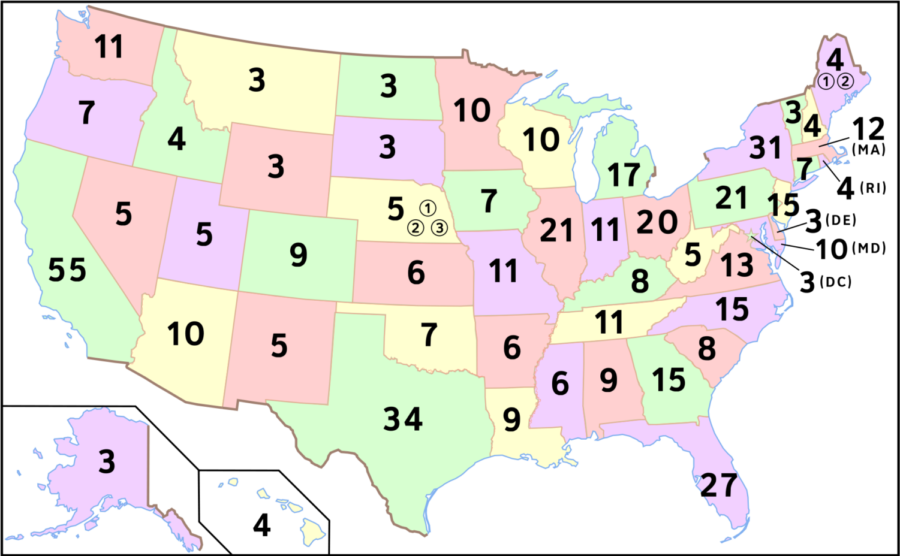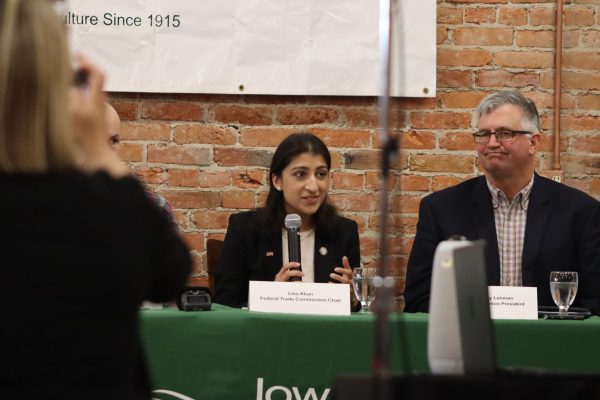One step closer to inauguration: The Electoral College will meet Monday
December 13, 2020
The Electoral College will meet Monday to choose the president when all the votes are counted. After nearly a month of legal challenges following the 2020 election, all 50 states have certified their general election results.
There will be 51 separate Electoral College units to represent the 51 states and the District of Columbia. Iowa has six electors, which include David Chung in the 1st Congressional District, Thad Nearmyer in the 2nd District, Ronald Forsell in the 3rd District, Polly Granzow in the 4th District and elected at-large members Charlie Johnson and Kurt Brown.
Following certification is the Electoral College meeting. Under the Constitution, electors possess the power to choose the president.
After the Supreme Court rejected recent efforts in Texas by the Trump administration to overturn the election, results were further solidified. Because of all the legal challenges, the Electoral College meeting has more hype around it than in previous years.
While it is now unlikely the Trump campaign will have to overturn the results, some liberals have concerns of faithless electors arise.
President-Elect Joe Biden is expected to have 306 electoral votes compared to President Donald Trump’s 232, which happens to be electoral vote totals in 2016 as well. Mack Shelley, chair of the political science department, said this could be because of the swing states Biden flipped since the 2016 election.
During 2016, 10 electors tried to vote for other candidates, according to The Associated Press. In 32 states and the District of Columbia, there are laws requiring electors to vote for the popular-vote winner.
Shelley said since 2016, states have worked to make it harder to be a faithless elector, but it is still possible if the election is close enough.
“I don’t think it is exactly impossible, but the number of faithless electors would have to be pretty substantial, and they would have to all vote one way to reverse this outcome,” Shelley said.
Iowa electors can not vote for anyone other than Trump because of the “faithless elector” law that was passed, which requires electors to take a pledge promising to case their ballot nominee. In Iowa, it is for Trump and Vice President Mike Pence.
Shelley said it is out of the norm for there to be recounts or challenges after an election. In 2000, then-Democratic Presidential Nominee Al Gore challenged election results in Florida, but this time around, results are far more clear.
Trump would have to overturn results in multiple states that flipped for Biden this election.
“This has become, pretty much, a debate over the nature of American government, and it is pretty fundamental,” Shelley said.
Biden not only won the electoral vote by over 30 points, but he also won the popular vote with a record-breaking turnout lead by more than 7 million votes.
“This is seen by a lot of people as kind of a life or death matter about whether what we use as the democratic procedure will be continued,” Shelley said.

















